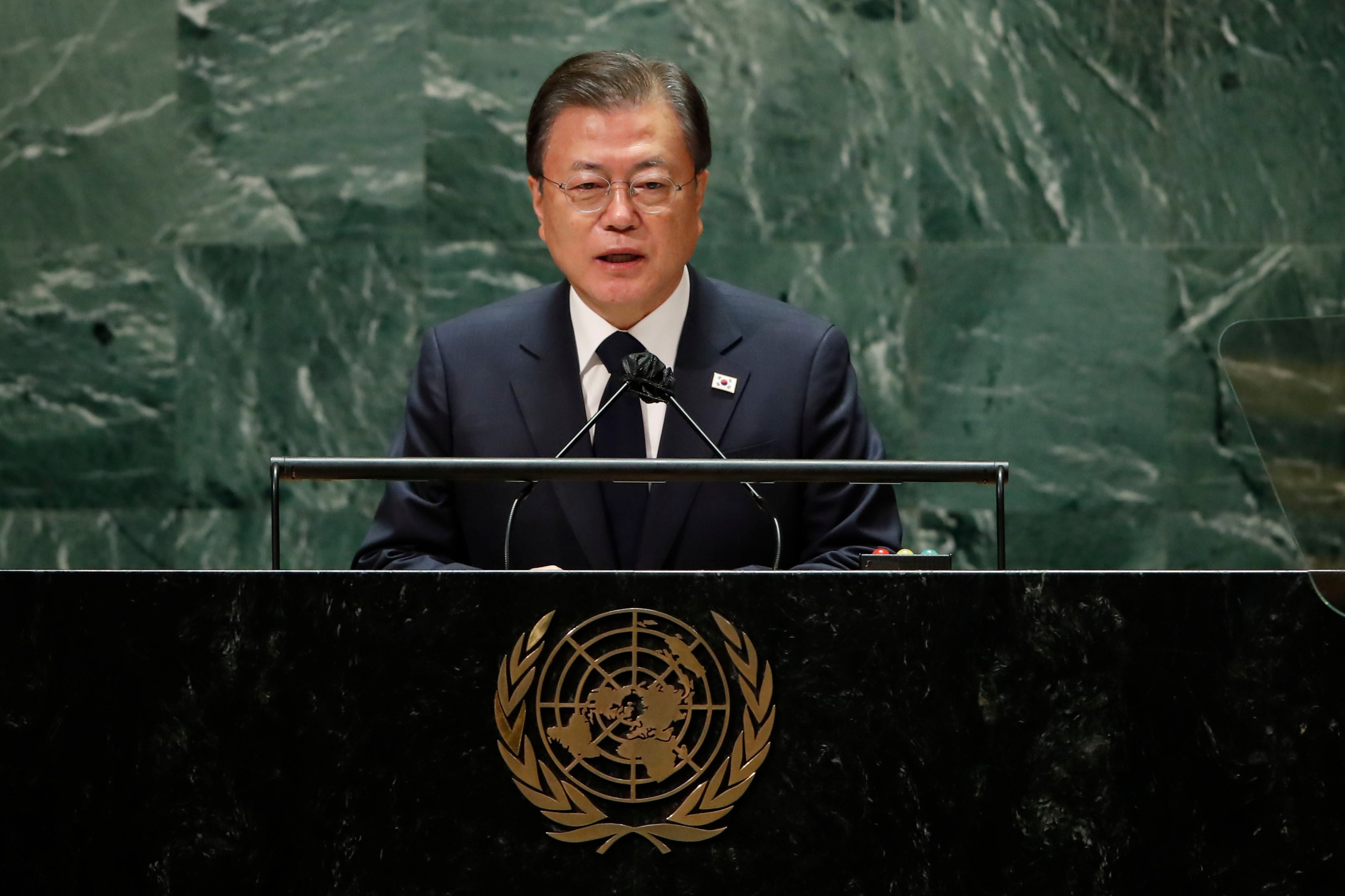N. Korea rejects South's calls for end-of-war declaration
North Korea has rebuffed South Korea’s push for a declaration to end the 1950-53 Korean War, calling it a potential “smokescreen" to cover up hostile U.S. policy

Your support helps us to tell the story
From reproductive rights to climate change to Big Tech, The Independent is on the ground when the story is developing. Whether it's investigating the financials of Elon Musk's pro-Trump PAC or producing our latest documentary, 'The A Word', which shines a light on the American women fighting for reproductive rights, we know how important it is to parse out the facts from the messaging.
At such a critical moment in US history, we need reporters on the ground. Your donation allows us to keep sending journalists to speak to both sides of the story.
The Independent is trusted by Americans across the entire political spectrum. And unlike many other quality news outlets, we choose not to lock Americans out of our reporting and analysis with paywalls. We believe quality journalism should be available to everyone, paid for by those who can afford it.
Your support makes all the difference.North Korea rebuffed South Korea’s push for a declaration to end the 1950-53 Korean War as a way to restore peace, saying Friday such a step could be used as a “smokescreen covering up the U.S. hostile policy" against the North.
In a speech at the U.N. General Assembly earlier this week, South Korean President Moon Jae-in reiterated his calls for the end-of-the-war declaration that he said could help achieve denuclearization and lasting peace on the Korean Peninsula
North Korean Vice Foreign Minister Ri Thae Song dismissed Moon's call as premature so long as U.S. policies were unchanged. “It should be clearly understood that the declaration of the termination of the war is of no help at all to stabilizing the situation of the Korean Peninsula at the moment but can rather be misused as a smokescreen covering up the U.S. hostile policy," Ri said.
He said American weapons and troops deployed in South Korea and its vicinity and regular U.S. military drills in the region “all point to the U.S. hostile policy toward (North Korea) getting vicious day by day.” North Korea has also long described U.S.-led economic sanctions as proof of U.S. hostility against the North.
The Korean War ended with an armistice, not a peace treaty, leaving the peninsula in a technical state of war. North Korea has steadily wanted to sign a peace treaty with the United States to formally end the war and for subsequent improved relations, sanctions relief and the reduction or withdrawal of the 28,500 U.S. troops deployed in South Korea.
Both Koreas had called for an end-of-war declaration to be made during the period of diplomacy with the United States that began in 2018, and there was speculation then-President Donald Trump might announce the war's end in early 2019 to convince North Korean leader Kim Jong Un to commit to denuclearization.
No such announcement was made as the diplomacy faded to a stalemate over easing the sanctions in return for North Korea denuclearizing.
In recent months, Kim has warned that North Korea would bolster its nuclear arsenal and introduce more sophisticated weapons systems unless the United States drops its hostile policy. Last week, North Korea conducted its first missile tests in six months, demonstrating its ability to launch attacks on South Korea and Japan, two key U.S. allies where a total of 80,000 American soldiers are stationed.